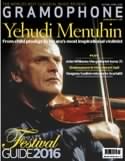Texte paru dans: / Appeared in: |
|
|
Outil de traduction (Très approximatif) |
|
|
Reviewer:
Caroline Gill
To pin down the specific problems of this perplexing recording of JS Bach’s Sonatas and Partitas for solo violin transcribed for cello, it is difficult to know where to begin. The reassignment of keys is one starting point, though: the D minor Second Partita in particular is hugely compromised in its presentation in G minor (Bach’s own specification for each suite was done with his characteristic precision). The very specific sound of unisons and open strings that Bach would have sought to exploit are noticeably and painfully absent. Similarly, the stretching intervals that constitute the Prelude of the C major Third Sonata become darker and more introverted the wider they become in F major, rather than overwhelming the listener with the sense of light that gradually breaks out when they sit properly in their original key. Furthermore, it is hard to know whether Phantasm’s violplaying Markku Luolajan-Mikkola is finding the cello too cumbersome an instrument to manage Bach’s nimble melodies or whether he is simply trying to treat the cello like a violin; but the phrasing and articulation are laboured in a way that leave the unavoidable impression that the cello is simply the wrong instrument for these pieces.
All these points, though, are
secondary to the serious tuning issues that prevent any first impressions
burgeoning into anything deeper. The frantic skittering around the strings in
the fast movements, often resulting in actual mistakes (such as in the Presto of
the B minor First Partita, played here in E minor), and lugubrious overworking
of broad phrases in the slow movements (the Sarabande of the same suite) both
result in painfully strained intonation, which with the weight of Mikkola’s
dark, heavy cello sound forms a corrosive combination that constantly threatens
to suffocate the music. The sequences of chord progressions leading up to the
cadences are not sufficiently well tuned even to convey the sense that the
tuning of the rest of the movement has in some way been for effect, or part of a
harmonic journey. In other words, they don’t act in any way other than to
confirm a creeping sense that this disc does little to sell the exciting arena
of historically informed performance. |
|
|
|
|
|
Cliquez l'un ou l'autre
bouton pour découvrir bien d'autres critiques de CD |
|




